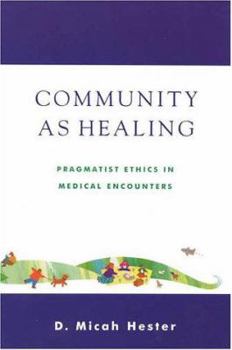Community as Healing: Pragmatist Ethics in Medical Encounters
Select Format
Select Condition 
Book Overview
The brief history of 20th century bioethics has been dominated by discussions of principles and appeals to autonomy that both divorce theory from practice and champion a notion of the individual as prior to and isolated from society. Pragmatism, on the other hand, has long sought to reconstruct ethical thought with the belief that distinctions between theory and practice, individual and society are not a priori starting points but purposeful developments of inquiry. Using insights from classic pragmatism, the author proposes reconstructive accounts of physician-patient relationships resulting in an emphasis on aiding the process of meaningful/significant living for all individuals involved in medical encounters. William James, John Dewey, and George Herbert Mead, among others, provide discussions of human relationships which accentuate the situatedness of problems and solutions and stress the need for building shared experience in order to develop both self and community. With an insistence on a recognition of a functional concept of the self (or 'self as social product'), the author's pragmatic position illuminates the integration of self with the community and leads to a new practice in the medical encounter, based on an attitude of community as healing.
Format:Paperback
Language:English
ISBN:0742512193
ISBN13:9780742512191
Release Date:June 2001
Publisher:Rowman & Littlefield Publishers
Length:120 Pages
Weight:0.45 lbs.
Dimensions:0.4" x 5.9" x 9.0"
Customer Reviews
0 rating





